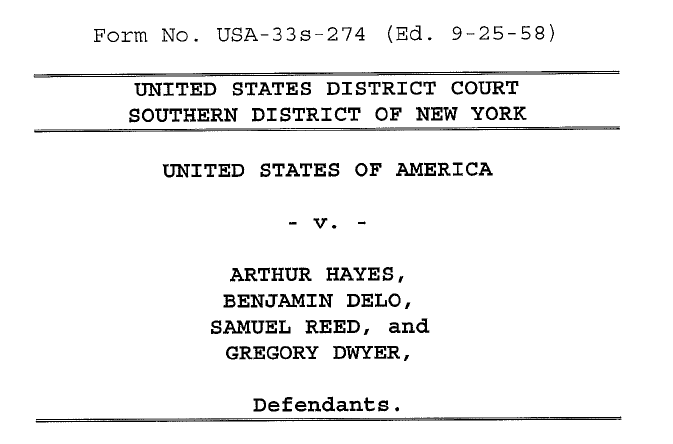Although BitMEX’s ex-CEO Arthur Hayes could have gone to jail soon, his owning up to the accusations got him sentenced to six months of house arrest and two years of probation.

One of the four federal district courthouses in New York reportedly sentenced founder and ex-CEO Arthur Hayes to two years probation and six months home detention, bringing the long-awaited judgment related to the BitMEX crypto exchange’s money laundering activities to a close.
On February 24, Arthur Hayes, the other BitMEX co-founders — Benjamin Delo and Samuel Reed — and the company’s first non-employee Gregory Dwyer pleaded guilty to BSA violations, admitting to “willfully failing to establish, implement, and maintain an Anti-Money Laundering (AML) program at BitMEX.”

Pleading guilty to assisting in money laundering is a punishable offense with a maximum penalty of five years in prison. However, before the March trial date, both Hayes and Delo entered guilty pleas and agreed to pay $10 million in criminal fines.
Hayes voluntarily surrendered to US authorities in Hawaii six months after federal prosecutors first filed charges and his lawyers stated:
“Mr. Hayes voluntarily appeared in court and looks forward to fighting these unwarranted charges.”
Hayes was released after posting a $10 million bail bond, according to the indictment, public court filings, and statements made in court, pending future proceedings in New York. Prosecutors from the Office’s Money Laundering and Transnational Criminal Enterprises Unit, however, found the entrepreneurs guilty of failing to implement AML safeguards, including failing to meet know-your-customer (KYC) obligations.
Even though he faced jail time, Hayes was sentenced to home confinement for the first six months of his sentence after admitting to the allegations. In addition, he agreed to pay a $10 million fine.
A new analysis debunks the myth about the ease of laundering money with cryptocurrency, highlighting the potential of blockchain technology and cryptocurrency to track down financial crimes.
While numerous projects in the crypto ecosystem have been targeted, bad actors are still having difficulty cashing out stolen funds.
